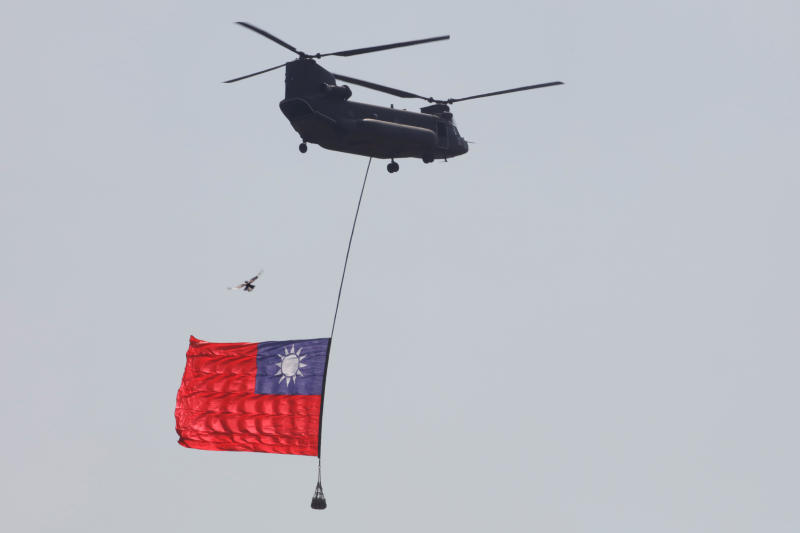US calls on China not to interfere in Taiwan election
Sign up now: Get insights on Asia's fast-moving developments

Tensions between Beijing and Taipei have historically risen whenever Taiwan goes to the polls, with China seeing the island as part of its territory awaiting reunification, by force if necessary.
PHOTO: REUTERS
WASHINGTON (AFP) - The United States on Thursday (Dec 12) urged China not to interfere in elections next month in Taiwan, where President Tsai Ing-wen, a critic of Beijing, is seeking a new term.
Mr David Stilwell, the top US diplomat for Asia, said that tensions between Beijing and Taipei have historically risen whenever Taiwan goes to the polls.
"They should not," he said of the tensions. "The concern always exists for somehow meddling - interfering - in internal affairs there."
Mr Stilwell said that the US, through its policy of providing arms to the self-ruling island while recognising only Beijing, sought for differences between the two sides to be "resolved through dialogue and without violence or coercion or threats".
"So that's our expectation for this upcoming event as well," he said at the Centre for Strategic and International Studies.
Ms Tsai, who has emphasised Taiwan's separate identity and voiced solidarity with Hong Kong's pro-democracy movement, on Jan 11 faces a challenger who favours warmer ties with Beijing.
Beijing sees Taiwan - where China's defeated nationalists fled in 1949 - as part of its territory awaiting reunification, by force if necessary.
The top US diplomat in Taiwan, Mr Brent Christensen, last month also voiced "concerns" that China would try to influence the vote.
Beijing said that its first domestically built aircraft carrier recently sailed through the Taiwan Strait, although it described the move as routine.
China 'bad faith'
Tensions have soared between the US and China, with President Donald Trump's administration pressing Beijing hard not only on trade but also on human rights, including its mass incarceration of the Uighur minority.
In a speech, Mr Stilwell said that China had itself to blame for the deterioration in relations.
He described the US as a longstanding partner of China, pointing to its late 19th century "Open Door Policy" that opposed its subjugation to a single Western power as well as the two countries' World War II alliance against imperial Japan.
More recently, he noted US advocacy for China's permanent seat on the United Nations Security Council and Washington's pursuit of trade relations even after hundreds of unarmed civilians were killed in a crackdown on democracy protests in Tiananmen Square in 1989.
"It is altogether bogus that Beijing today claims that America's new competitive posture toward the PRC (People's Republic of China) betrays some long desire to 'keep China down' as a nation," he said.
"On the contrary, our posture today is based on disappointment that Chinese Communist Party leaders decided to respond to our good faith with such aggressive and consistent bad faith."


